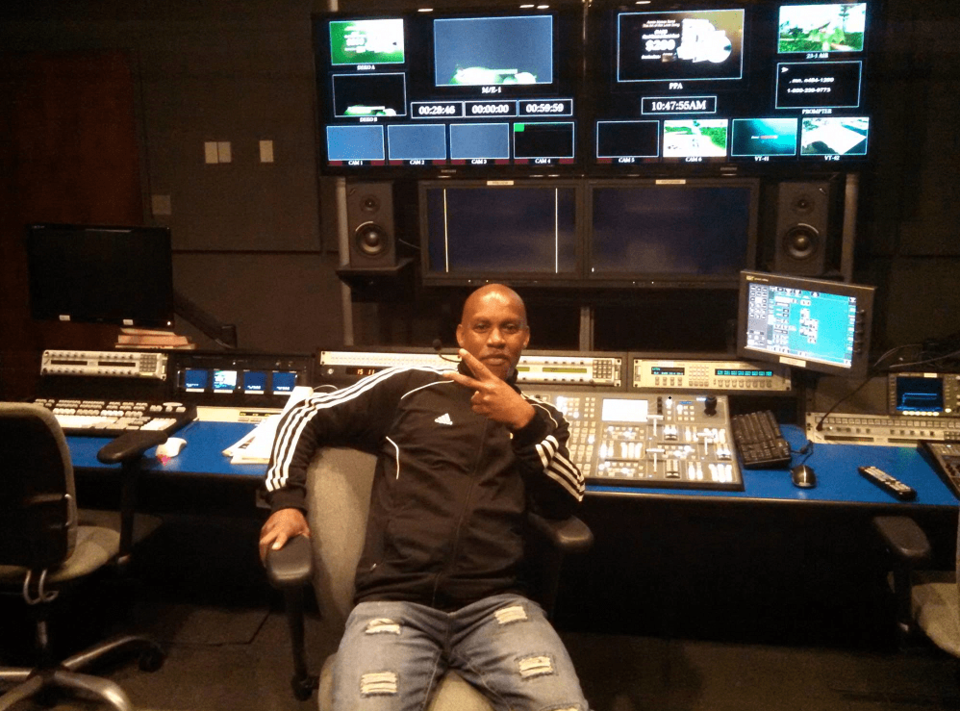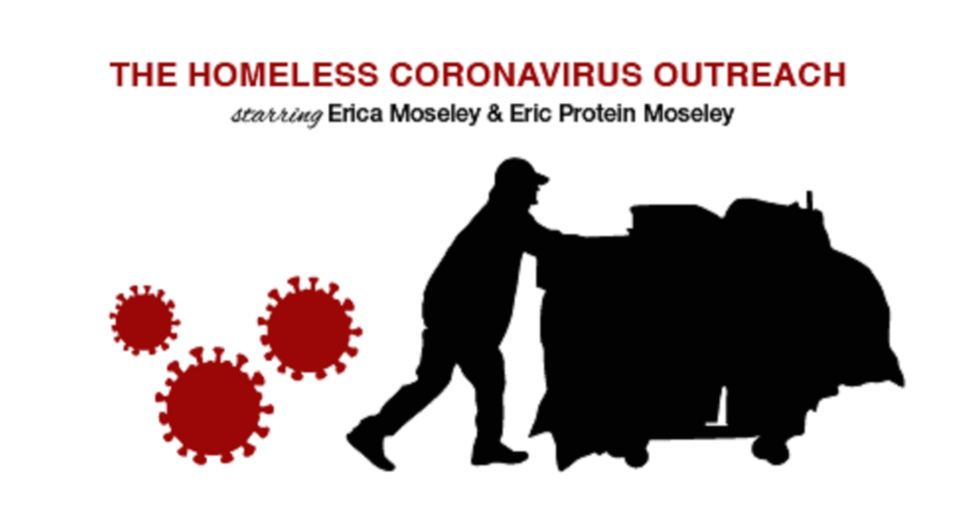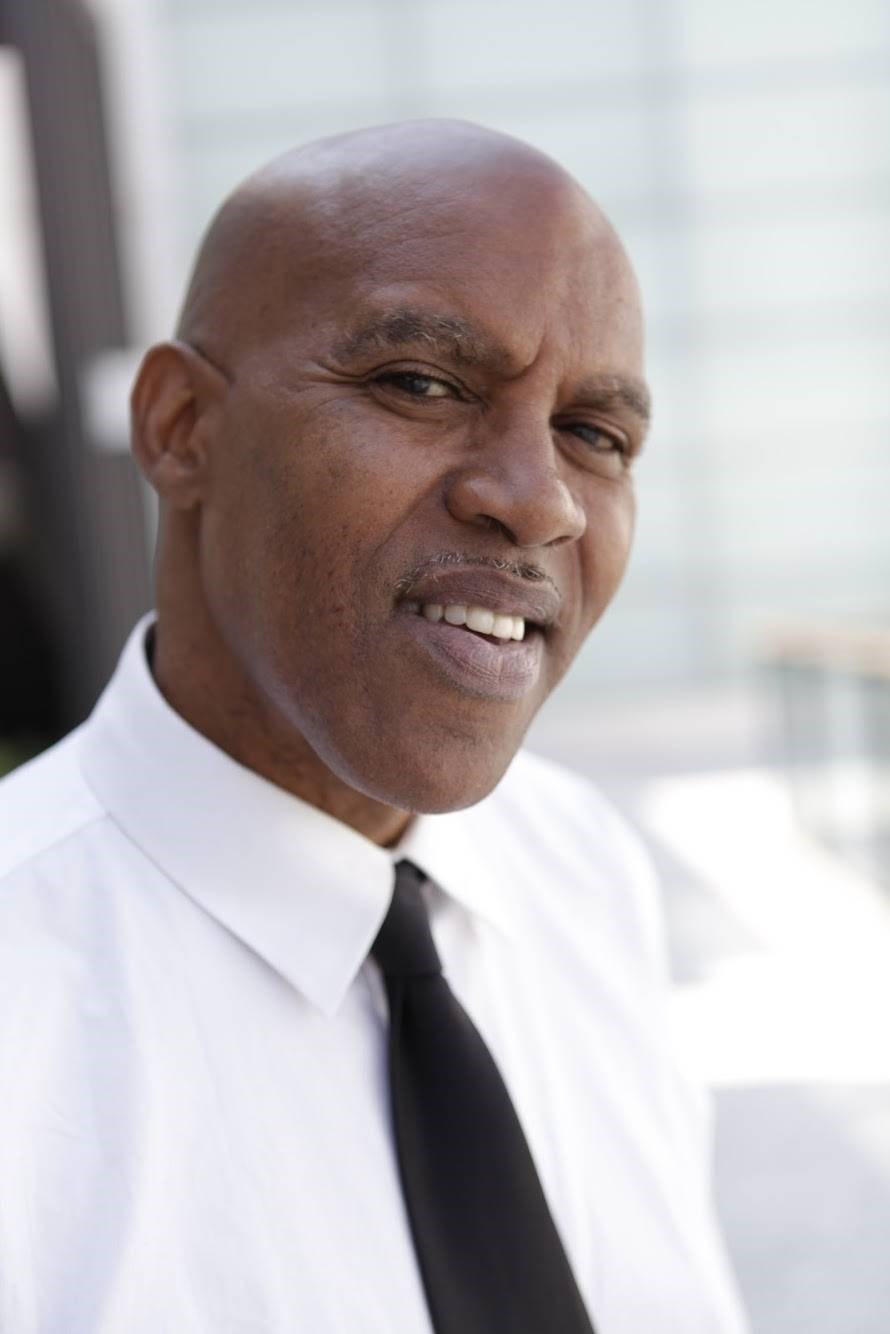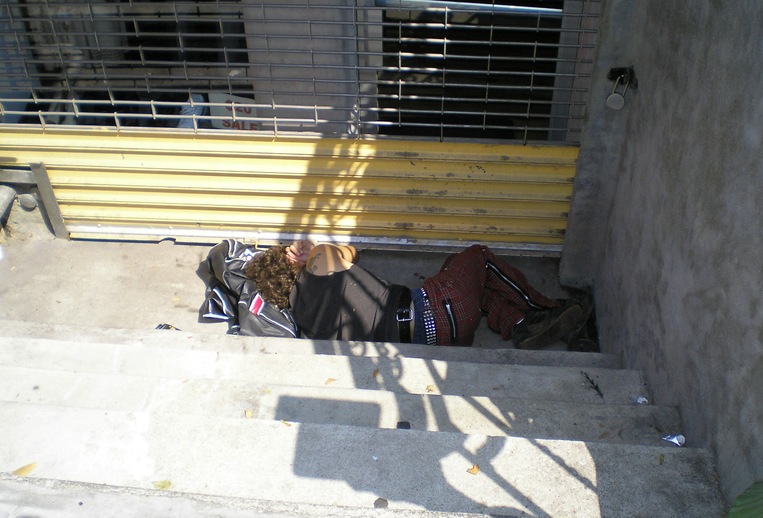Concern flooded documentary filmmaker Eric "Protein" Moseley's mind as he watched the news from his Los Angeles home of California issuing the first statewide coronavirus lockdown in March.
"Everyone was sheltering in place except the homeless — the people who were the most vulnerable by living on the streets," Mosely told BK Reader. "My daughter and I were once homeless in Brooklyn and in other cities. That's the reason it struck me."
As he listened to the news report, Moseley said he got a message from God telling him to go out and inform homeless people about the virus because no one else was telling them.

The father-daughter duo took to the streets of San Francisco and talked one-on-one with more than 100 unsheltered people — most of them were either unaware or had limited knowledge about COVID-19.
His primary mission was to inform the destitute individuals about the virus and to distribute pandemic care packages.
"I wasn't even thinking about making a film at the beginning," he said.
However, as he recorded footage of the encounters, the social impact documentarian knew that he had to tell the stories of homeless people in the early days of the pandemic.
What virus?
Moseley's film, The Homeless Coronavirus Outreach, is scheduled to air in Brooklyn on BRIC TV. The documentary, which is also available on YouTube, has aired in six cities and several countries, Moseley said, and it's coming soon to Cape Town, South Africa.
His adult daughter Erica Moseley conducted most of the interviews in the film, which he shot mainly in San Francisco and Los Angeles on an iPhone over four days.

In one scene, Erica, pushing a shopping cart filled with informational leaflets and care packages, which included hand sanitizer, asks a young woman if she's aware of the deadly virus.
"Virus?" the woman responds confused.
"The coronavirus. Did you know about the coronavirus?" Erica explains.
"No," the woman replies, as she takes the care package and hurries away.
Five out of 10 homeless people were unaware of COVID-19, the filmmaker said. Those fortunate enough to live in shelters or hotels knew little more than some type of virus was going around.
Through the film, Moseley drives home the message that unsheltered individuals should be valued as much as those in the "mainstream of society."
"The pandemic is never going to go away if we ignore the homeless population," he pointed out as a practical matter.

From homeless to advocate
Moseley's journey from homelessness to homeless advocate was rocky.
At one point, Moseley, who had a drug addiction, was destitute in New York City.
He and his daughter managed to eventually get a roof over their heads at the infamous Fort Greene Auburn Family Reception Center, a homeless shelter that was once a hospital.
Advocates for the homeless and many residents at the facility complained that it was one of the worst family shelters in the city, having unsafe conditions, poor heating in the winter and security guards who sought sexual favors from residents. They eventually secured an apartment in the East New York-Brownsville area.
Those experiences gave him firsthand insight into the plight of un-housed individuals and a unique perspective on telling their stories.
In 2004, he envisioned creating a reality TV show about the lives of homeless people. He began recording interviews with down and out individuals struggling to survive on the streets.
That plan changed when a friend suggested that he use the footage to make documentaries about homelessness and to become their advocate.
"From there, I started enjoying what I was doing because I was making an impact," Moseley said.
He took $200, set aside to create his TV pilot, and bought a camera to film L.A.'s infamous Skid Row, a 53-block downtown area where more than 2,500 unsheltered people lived. It led to his first documentary, Skid Row Journey, released in the early-2000s
Moseley has continued to make social impact documentaries but said his personal journey as a filmmaker and advocate has just begun, adding he had several new works in the making.




